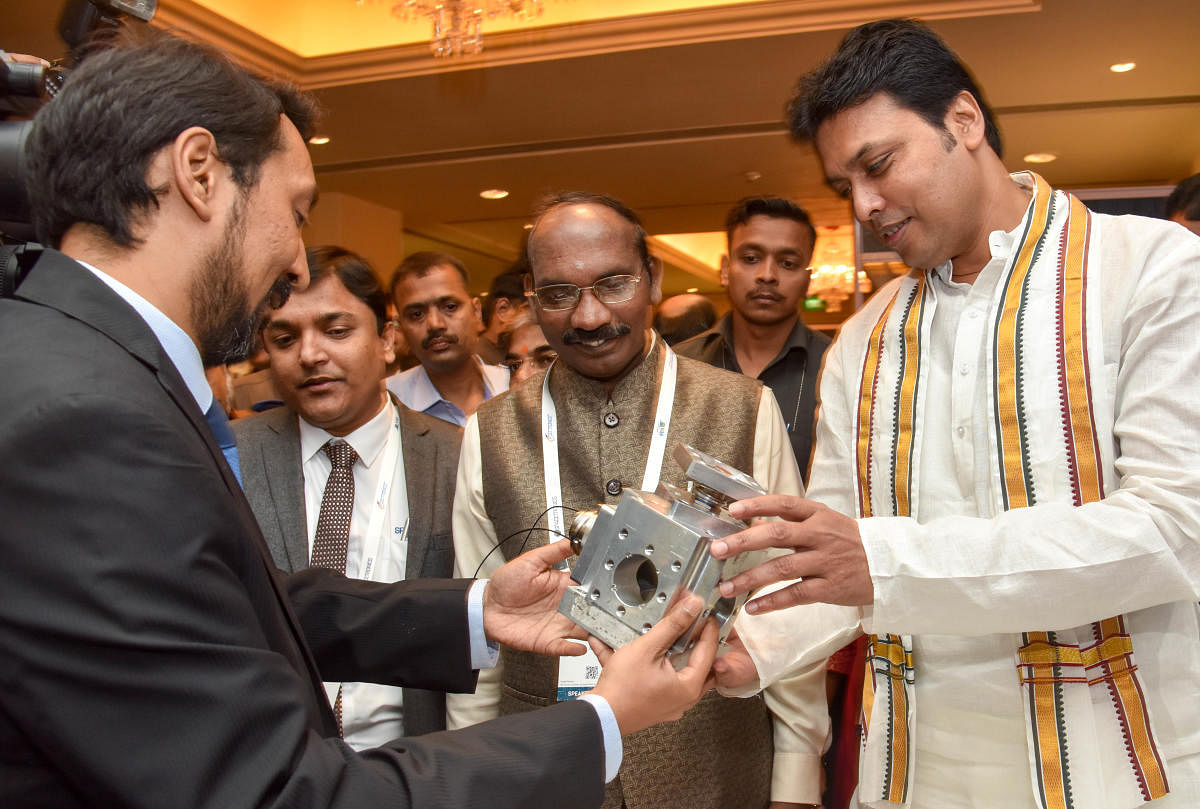
The Indian Space Research Organisation (ISRO) on Tuesday opened the first of its six planned Technology Incubation Centres at Agartala, a strategic move aimed at leveraging the huge untapped potential of academia-industry partnerships.
The space agency will allocate Rs 2 crore to build the necessary facilities for the incubation centre, to be set up at the National Institute of Technology (NIT), Agartala. ISRO chairman, K Sivan, offered to buy back the space mission prototypes built by the Centre. "These could be linked to aerodynamics, propulsion systems or any area," he said.
Over the next months, five more incubation centres will be launched, all in locations with zero space activity but with a strong presence of academic institutions and the industry. On ISRO's agenda are centres in Jalandhar, Nagpur, Indore, Bhubaneswar and Tiruchirapalli, all to be established through academia tieups and industry partnerships.
To extend ISRO's reach, Sivan also unveiled plans to launch regional academic centres for space research in Patna, Jaipur, Varanasi, Kurukshetra, Guwahati and Kanyakumari. "These centres can give us seed ideas. Who knows, products developed from their prototypes might even be part of Gaganyaan," he said.
Establishing Chairs in six universities across the country is another ISRO strategy. First in the pipeline is a Satish Dhawan Chair at the Jammu and Kashmir University, to be inaugurated on October 11.
Tripura Chief Minister Biplab Kumar Deb said the incubation centre would give his state an opportunity to steer ahead in the Information Technology (IT) and manufacturing sectors.
Spacetronics 2018
At the first edition of Spacetronics 2018, organised by the India Electronics and Semiconductor Association (IESA) at the Leela Palace hotel here, the focus was on indigenisation to beat the high cost of imported electronics.
Currently, electronic components make up 6-7% of ISRO's total project cost. If the technology is available here, as Sivan pointed out, this gap could be addressed. IESA chairman Anil Kumar Muniswamy was confident that a design-lead manufacturing strategy focused on Intellectual Property would be the way forward.
Across sectors, space included, the market for consumption of electronics is poised to grow to $800 billion (Rs 58 lakh crore) by 2026. But, as Muniswamy informed, India's capacity to locally produce the electronics is limited to only about $120 billion (Rs 8.7 lakh crore).